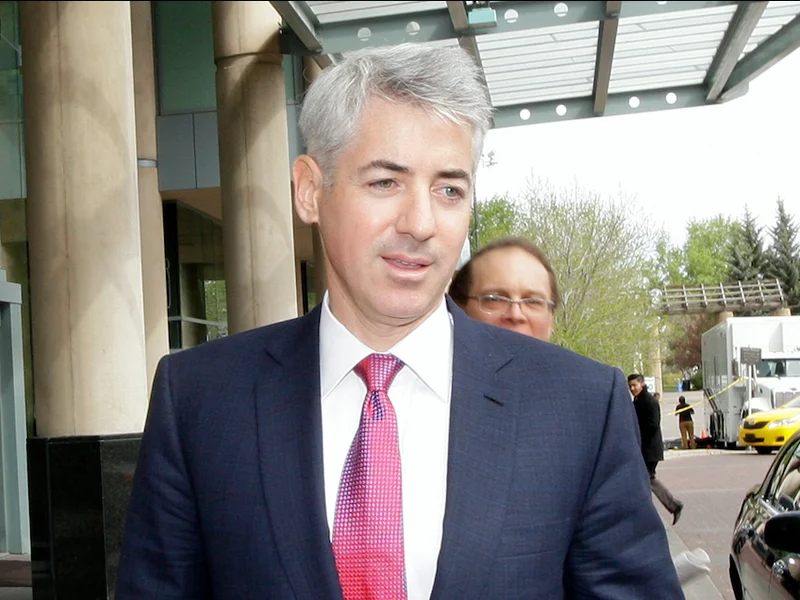Article Directory
A recent CNBC segment titled Bill Ackman calls Trump the 'most pro-business president we've ever had' was, on its face, a standard piece of political-financial commentary. In it, the CEO of Pershing Square Capital Management stood by his support for Donald Trump, pointing to infrastructure spending and tax legislation as his primary evidence. In the same breath, he painted New York City’s Democratic mayoral nominee, Zohran Mamdani, as a "socialist" with the "wrong" solutions for the city's very real problems.
This is the kind of declaration designed to be clipped, shared, and debated. But treating it as a simple political endorsement misses the more interesting signal embedded within the noise. Ackman isn't just making a political statement; he's presenting an economic thesis. And like any thesis, it deserves to be stress-tested against the available data. The core assertion is that the Trump administration's policies are quantifiably superior for business. The primary exhibit for this claim appears to be the recent performance of the S&P 500, which has surged approximately 19% since a controversial tariff policy was announced in early April.
But a single data point, however impressive, can be profoundly misleading. A rising market index doesn't automatically validate the underlying economic strategy, any more than a rising tide proves every ship in the harbor is seaworthy. The real analysis begins when you look at the contradictions.
A Discrepancy in the Data
The most glaring discrepancy in Ackman's current position is his own recent history. It was only a few months ago that Ackman himself expressed being "a little bit concerned" by the very tariff policy that preceded this market rally. He now credits Trump for pausing and altering the policy after his suggestion, but this conveniently reframes the sequence of events. The initial policy, by his own admission, was a source of concern. The market's subsequent rally—up about 19%, or to be more exact, 18.8% as of Tuesday's close—occurred in an environment shaped by that same unpredictable, interventionist trade doctrine.
This presents a puzzle. If the policy itself was worrying, why is the market reaction seen as a resounding endorsement? My analysis suggests we're observing a classic case of the market pricing in sentiment over fundamentals. The tax bills and infrastructure spending are tangible, easily modeled benefits for corporate balance sheets. They are the sugar high. The tariff disputes and the escalating tensions with China over rare earth minerals (a direct consequence of this "pro-business" strategy) are long-term, systemic risks that are far harder to price. The market, in its perpetual short-termism, is celebrating the immediate fiscal stimulus while largely ignoring the potential for supply chain chaos down the road.

This is where the analogy of a powerful but unstable engine comes to mind. You can floor the accelerator and get a thrilling burst of speed, and for a moment, it feels like the most powerful engine ever built. But if the ride is jerky and the engine is prone to sudden stalls or backfires, you can't accurately call it a high-performance machine. It’s just a volatile one. Are we mistaking raw power for reliable performance? Is a CEO’s primary goal a short-term stock bump, or is it the kind of predictable, stable environment that allows for five- and ten-year capital investment plans?
Defining the Dependent Variable
This leads to a more fundamental methodological critique. Before we can test the hypothesis that Trump is the "most pro-business president," we have to define the term "pro-business." Ackman's framework appears to define it almost exclusively as "pro-publicly-traded-large-cap-equity." The S&P 500's trajectory is treated as the ultimate dependent variable.
And this is the part of the public discourse that I find genuinely puzzling. I've analyzed hundreds of corporate filings and listened to countless earnings calls where management teams list geopolitical instability and supply chain disruptions as primary operational headwinds. The recent US-Australia agreement on rare earth minerals, for instance, isn't a sign of a smoothly functioning global trade system; it’s an emergency patch (a necessary one, to be fair) on a system fractured by aggressive tariff policies. A truly "pro-business" environment, one could argue, is one of stability, regulatory clarity, and open markets—the very things that have been systematically challenged over the last few years.
Ackman’s pivot to the NYC mayoral race is telling. His critique of Zohran Mamdani isn't just about policy; it's about a perceived threat to the specific ecosystem that benefits his firm. He acknowledges Mamdani correctly identifies the problems of affordability and safety but rejects his "socialist" solutions. This is perfectly logical from his perspective. Mamdani's platform represents a potential reallocation of resources and a shift in political power away from Wall Street.
Ackman’s call for New York City CEOs to encourage their employees to vote is the final piece of the puzzle. It's a direct appeal to protect a specific definition of "pro-business"—one where the interests of large capital pools are the priority. But what happens if an employee at one of those firms can't afford rent in the city their company calls home? Is the administration that oversees a roaring stock market but also a deepening housing crisis truly "pro-business" for them, or just pro-their-boss's-portfolio? It’s a question of whose business, exactly, we are prioritizing.
A Calculated Bet on Volatility
Ultimately, Bill Ackman's endorsement isn't contradictory if you reframe his objective. A hedge fund manager doesn't necessarily profit from a stable, calm, and predictable market. They profit from volatility, from dislocation, from being right when others are wrong. A president who creates market swings with a single social media post, who initiates trade disputes that create winners and losers, and who enacts massive fiscal shifts provides a target-rich environment for a firm like Pershing Square. The endorsement of a "pro-business" president may, in fact, be a perfectly rational endorsement of a "pro-trader" president. The stability that benefits a Main Street manufacturer is an inconvenience; the volatility that unnerves them is an opportunity. From that perspective, Ackman's calculus is perfectly clear.



